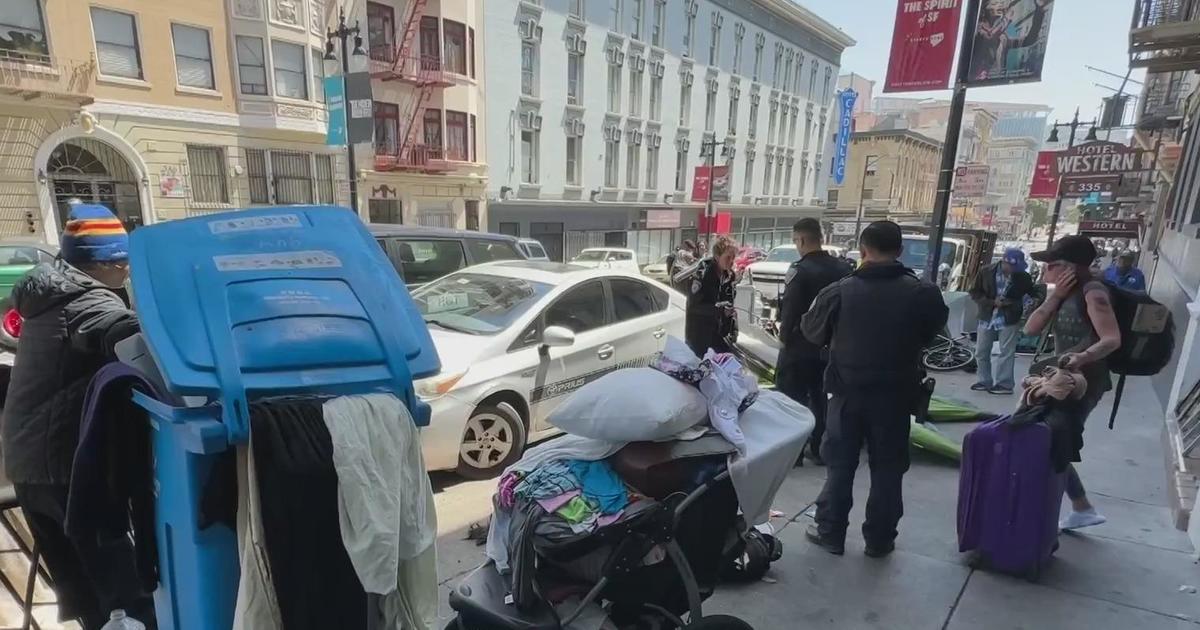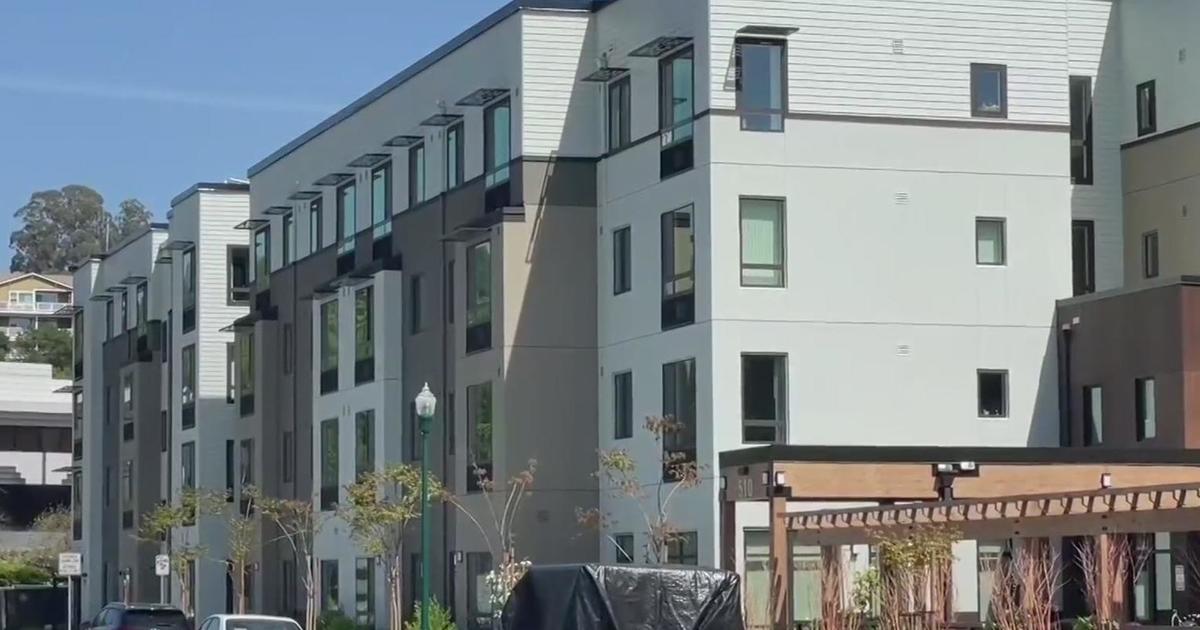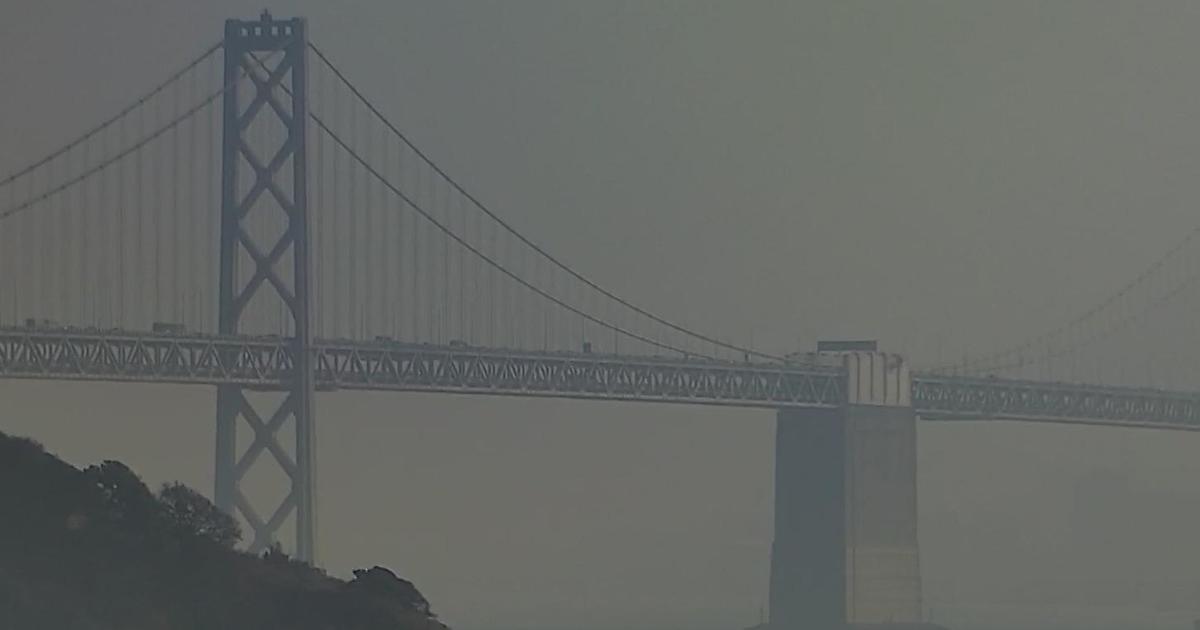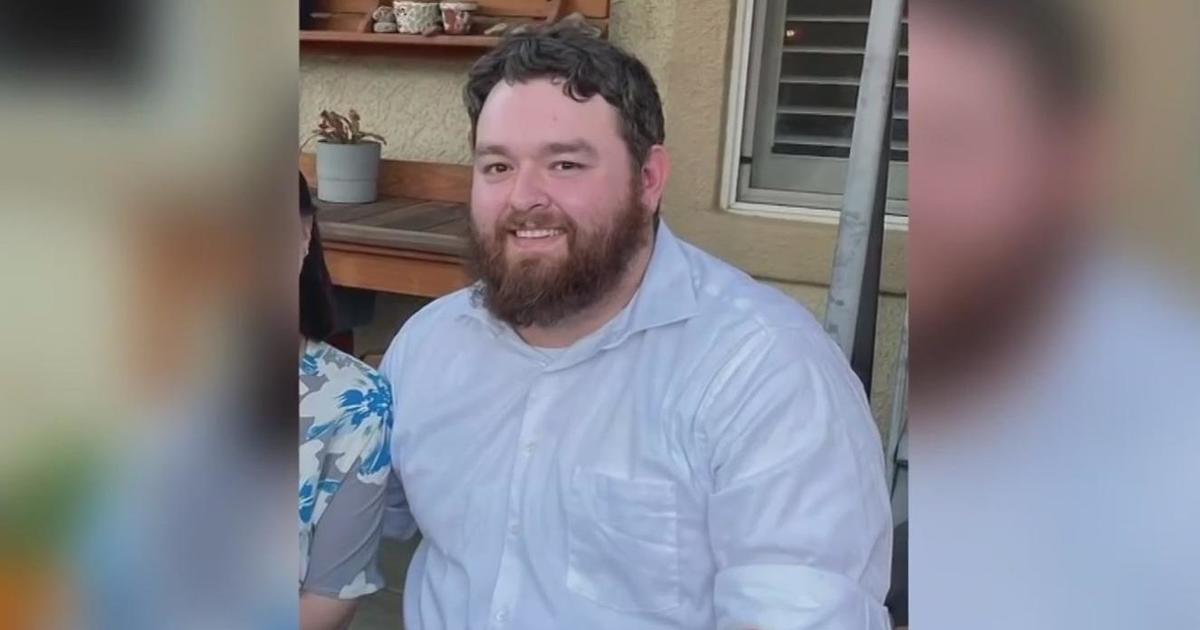With Sirhan Sirhan's Possible Parole Looming, Controversial Theories on RFK Assassination Resurface
By Allen Martin & Molly McCrea
LOS ANGELES (KPIX) -- More than 50 years ago, on April 17, 1969, a young Palestinian of Jordanian citizenship was convicted of killing U.S. Senator Robert Kennedy at a Los Angeles campaign event.
UPDATE: Gov. Newsom Denies Parole For RFK Assassin Sirhan Sirhan
Six days later, Sirhan Sirhan was sentenced to death in the gas chamber. In 1972, the California Supreme Court did away with the death penalty, and Sirhan's sentence was commuted to life in prison.
Now 77-years-old, Sirhan has sought to be released on parole numerous times.
On his 16th attempt on August 27, 2021, a two-member state parole board panel recommended that Sirhan is "suitable" for parole.
ALSO READ: Transcription of Sirhan Sirhan's Latest Parole Hearing
While an admission of guilt is not required to obtain parole, in this case, there is an enduring controversy about guilt, and who really shot and killed Robert Kennedy, also known as RFK. This dispute is dividing some experts as well as the Kennedy family.
Kennedy ran for President as an unlikely challenger to the incumbent, President Lyndon Johnson. The country was engulfed in social and political upheaval: the Vietnam War, violent riots, and racial strife.
Kennedy came to California to campaign for the Democratic Presidential Primary. In late May of 1968, Kennedy and his campaign blitzed the Bay Area.
Newly digitized KPIX news film shows Kennedy at Bayview Hunters Point, Elmhurst Park in Oakland, San Francisco's Chinatown, and even the Powell Street cable car. At every location, a sea of enthusiastic people showed up, cheering and hoping to shake his hand.
On May 31st, at the San Francisco Press Club, Kennedy gave a speech. His message struck a chord with the crowd.
"People feel like they have no control over what happens to them. They have no control over their destiny or their future; that it's decided a thousand miles away by some faceless figure who lives in Washington, D.C.," remarked Senator Kennedy.
Just a few days later, Kennedy won the all-important California Primary. Early morning on June 5th, he approached the podium in the Embassy Ballroom at the Ambassador Hotel in Los Angeles.
"My thanks to all of you. Now it's on to Chicago, and let's win there!" exclaimed Kennedy, as he flashed a peace symbol to the crowd.
Kennedy and his entourage then entered a kitchen pantry on the way to a news conference. He stopped to shake hands with the kitchen staff. Suddenly, gun shots rang out.
Kennedy was struck three times. He was transported to two hospitals, underwent emergency surgery. 26 hours later, he died from a severe brain injury. Kennedy was just 42.
Sirhan Sirhan was apprehended immediately at the crime scene. There were 77 people in the pantry and immediate area. Many were eyewitnesses, including those who wrestled the gun away from Sirhan.
Investigators later found Sirhan's handwritten manifesto, indicating how Kennedy must die from an assassination. There was little doubt at that time in anyone's mind that the 24-year-old Palestinian killed the senator. However, that open-and-shut case mentality would soon change.
"We discovered that there was really more to the story," said former KPIX News Reporter Mike Hegedus.
"He is not guilty of the murder. He is guilty of shooting me and four other people," remarked Paul Schrade.
Schrade is a former Kennedy campaign aide and a former union official in California. He was one of five bystanders shot and wounded by Sirhan.
He is convinced that Sirhan did not kill Kennedy.
"A second gunman is the one who killed Robert Kennedy, not Sirhan," said Schrade.
The 96-year-old told KPIX 5 the prime suspect is a security guard who was on duty that night. Schrade has made these claims for years.
In 1988, Schrade's contention stunned KPIX reporter Mike Hegedus.
"You know, there's stuff here that I never heard before," said Hegedus.
Hegedus interviewed Schrade, coroner Thomas Noguchi, who performed Kennedy's autopsy, FBI agent William Bailey who inspected the crime scene, political scientist Greg Stone, San Jose forensic scientist Lowell Bradford, eyewitnesses including former NFL lineman Rosie Grier, and an investigative journalist named Dan Moldea. The interviews were part of a special report broadcast on KPIX in 1988.
"I don't think we really know what happened that night," Dan Moldea told Hegedus in the special report.
Moldea had spent months looking into the shooting. His efforts were based in part on an FBI report indicating more bullets had been fired than Sirhan's gun could hold based on the bullet holes LAPD claimed were found in the pantry.
Sirhan had an Iver Johnson Cadet eight-shot, .22-caliber revolver. Reports indicate up to 13 bullet holes were found in the crime scene.
According to the coroner, the fatal shot was also delivered at point-blank range behind Kennedy's right ear.
"Sirhan literally would have had to have had the gun here and would have had to have hit you," Moldea explained to Mike during the broadcast, lunging forward to recreate the move.
Eyewitnesses testified they never saw Sirhan get that close.
Now, in 2021, with Sirhan on the cusp of actually getting parole, KPIX News asked Moldea what he thought.
"My position is that Sirhan should never be released," responded the investigator.
Over the years, Moldea came to believe Sirhan acted alone, and that the extra bullet holes in the walls were misidentified by the police who were not forensics experts.
He also said that he arranged to have the security guard take a polygraph test from a top expert. Moldea told KPIX that the now deceased security guard passed with flying colors.
"He was an innocent man wrongly accused," remarked the journalist.
Moldea ended up interviewing Sirhan three times in prison. He said that his last interview convinced him that Sirhan was taking advantage of journalists and letting them concoct these theories.
Moldea's re-examination of the evidence led to the publication of his book, "The Killing of Robert F. Kennedy." He started the book convinced a second gunman shot the candidate but ended up with a different conclusion.
"If I had gone with the conspiracy thing, I would have been wrong," said Moldea.
Schrade strongly disagrees with Moldea. He wants to test fire the security guard's .22-caliber gun and compare those bullets to the ones admitted in court during Sirhan's trial.
When Sirhan's gun was re-fired in the 1970s, those bullets did not match the only intact one taken out of Kennedy.
Moldea had an explanation. He told KPIX 5 that he was able to interview a number of LAPD officers about the mismatch. The officers told Moldea that since they believed Sirhan acted alone, and that the assassination was an open and shut case; that many officers wanted a souvenir from this historic case.
They shot off Sirhan's gun multiple times to obtain a souvenir bullet. Moldea said the officers told him that all the multiple shots that passed thru the barrel of the gun changed the configuration of the barrel to such a degree that the bullets from the trial and the refiring would not match.
As for Sirhan's possible release, the Kennedy family is also divided.
RFK's widow and six of nine surviving children oppose Sirhan's parole.
"They are totally wrong and their father would be very upset with them. He was a man of justice," said Schade.
Two other children, including Bobby Kennedy Jr., believe Sirhan should be released. That stunned Moldea.
"I said, 'Bobby this is the guy who killed your dad." But he insisted that Sirhan was innocent," recounted the journalist.
As for Sirhan, he accepts responsibility for having caused RFK's death, but continues to claim he does not remember the shooting.
During the August parole hearing, he said he "probably caused the whole incident" through his gun or other guns.
The LAPD opposes his release.
The two-member parole panel decided that Sirhan no longer poses a threat or danger to society in part because he has shown remorse and because he is an elderly man with multiple health problems. The panel noted how he has undergone therapy for anger management and attends AA meetings.
Sirhan has testified that he downed four alcoholic beverages known as a "Tom Collins" the night of the shooting.
Sirhan may also now benefit from a new California law that requires parole boards be more lenient to youthful offenders who committed the crime when they were 25 years of age or younger. Sirhan was 24 when RFK was assassinated.
There is a 120-day review period by the parole board, and then the California Governor's office follows every parole suitability finding.
After the review period, Governor Gavin Newsom may take one of five actions: reverse, uphold, modify the decision, send it to the full board for reconsideration, or take no action.
The California State Archives, Office of the Secretary of State is now home to the LAPD records of the Robert F. Kennedy Assassination Records. KPIX would like to thank archivist Beth Behnam for her assistance in retrieving critical pieces of evidence presented during Sirhan's 1969 trial so it could be captured by our cameras.



